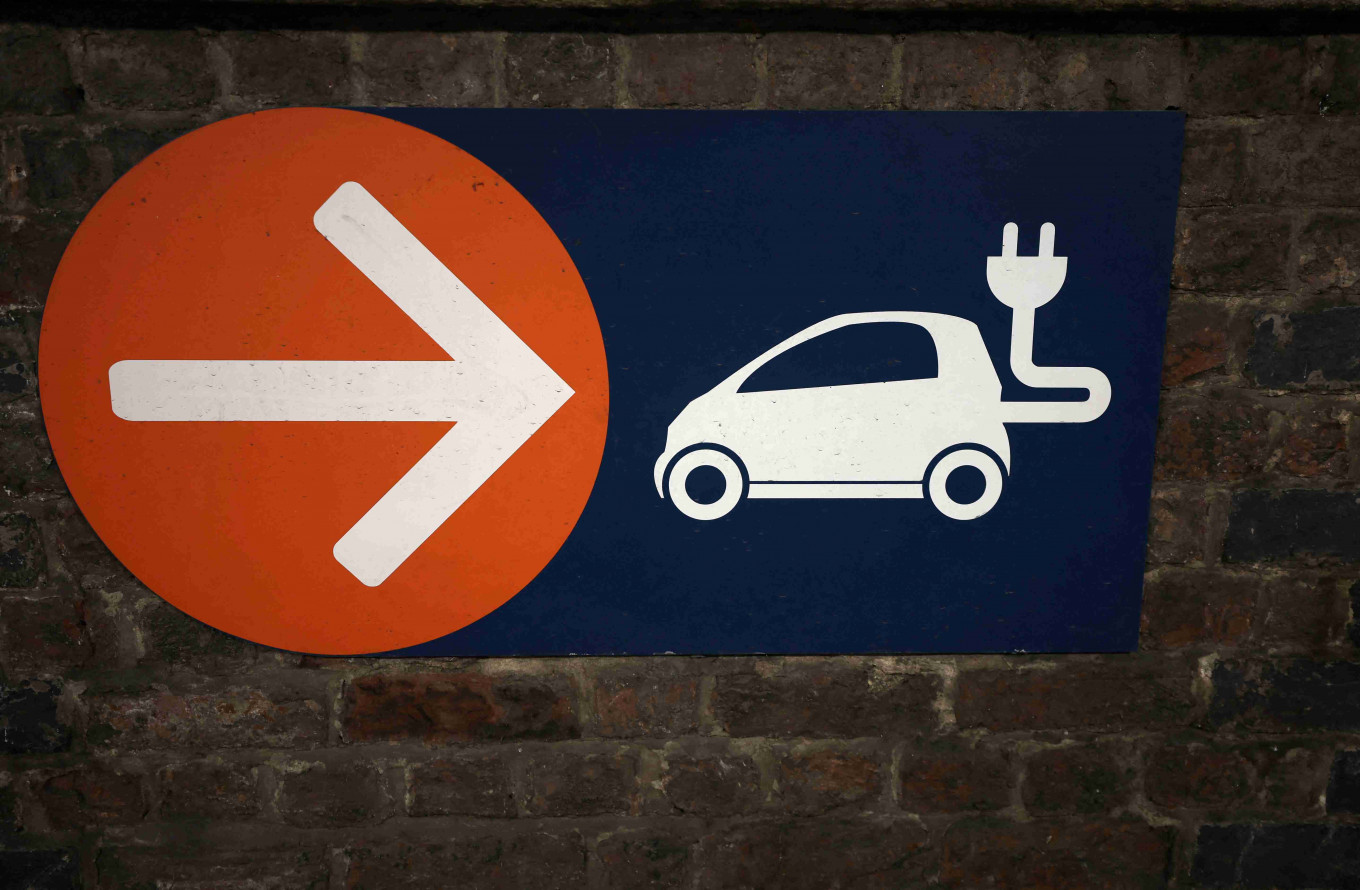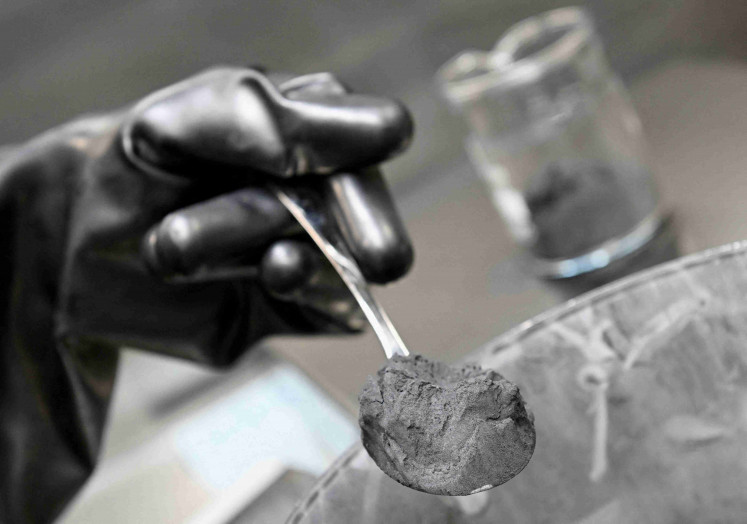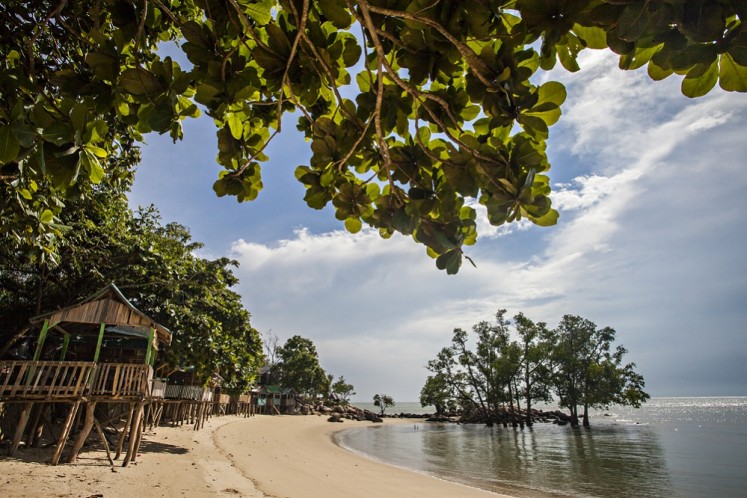Popular Reads
Top Results
Can't find what you're looking for?
View all search resultsPopular Reads
Top Results
Can't find what you're looking for?
View all search resultsGlobal EV battery supply chain puzzles over China graphite curbs
China's latest limit on critical mineral exports, which Beijing said is not targeted at a specific sector, has fuelled uncertainty in the global EV supply chain since it was announced last Friday.
Change text size
Gift Premium Articles
to Anyone
B
eijing's move to restrict graphite exports will have a disproportionate impact on foreign makers of electric vehicle battery components who have not yet shifted to using as much synthetic material as Chinese counterparts, industry insiders and experts said.
China's latest limit on critical mineral exports, which Beijing said is not targeted at a specific sector, has fueled uncertainty in the global EV supply chain since it was announced last Friday.
Some Chinese manufacturers, including those with operations overseas, said they expect limited impact from the rules as most EV batteries they make use a grade of synthetic material that is unaffected by the curbs.
China dominates the global EV battery supply chain including production of graphite - the single largest component. Graphite companies in the country process both the natural material mined domestically and overseas, as well as synthetic forms.
Japan, South Korea and the United States are top buyers of both natural and synthetic Chinese graphite, and analysts warned the new measures could slow or reduce graphite supplies needed by companies there to produce anodes - the negative electrodes of EV batteries.
Under the new rules, China will require export permits starting Dec. 1 for high-end synthetic graphite, as well as key forms of natural graphite.
Several executives in China and globally at companies that use graphite said they were still seeking further clarity on the new measures.
An employee at Qingdao Haida, a major Chinese graphite processor, who declined to be named as they was not authorised to speak on behalf of the company, told Reuters that the company's products include spherical graphite, which is used in lithium ion battery anodes and is covered by the new rules and is exported to South Korea and Japan.
"We haven't got any instructions from MOFCOM (China's Ministry of Commerce) on how to apply for export permits but it will definitely make the exporting process more inconvenient," the person said.
Haida did not immediately respond to a request for comment.
China's recent move to require export permits for gallium and germanium products has choked off international shipments of the chipmaking metals.
The commerce ministry did not respond to further queries from Reuters. A source familiar with the Chinese government's thinking noted that graphite was also used in military equipment.
China's synthetic push
But Chinese companies, which have been building overseas plants, said the restrictions will have little effect on their operations abroad. The Chinese firms use synthetic graphite, but not the high grade form covered under the new measures, with a density of 1.73 grams per cubic centimetre and above.
China produces large quantities of synthetic graphite, which enables lower battery charge times.
While adoption among foreign manufacturers is growing, their shift from natural to synthetic graphite has been slower, in part because it is more polluting to produce petroleum-based synthetic graphite and natural graphite anodes also tend to be cheaper, which makes them vulnerable to the Chinese curbs.
Volkswagen-backed Chinese firm Gotion High Tech, which produces batteries in Germany and plans a U.S. plant, said graphite used in its batteries has a density lower than 1.7 grams per cubic centimeter, which would make it unaffected by the restrictions.
Similarly, BTR New Material Technology, the world's largest anode producer, told Shanghai government-run media outlet The Paper that the rule's impact on it would be limited, as its products have a density of between 1.5 and 1.7 gram per cubic centimeter for EV batteries.
Ningbo Shanshan, another leading Chinese anode maker, told The Paper that the restrictions would have no impact on its exports of artificial graphite products.
BTR and Shanshan, which have announced plans to build factories in Indonesia and Finland, respectively, did not immediately respond to requests for comment from Reuters.
Graphite powder, used for battery paste, is pictured in a Volkswagen pilot line for battery cell production in Salzgitter, Germany, May 18, 2022. REUTERS/Fabian Bimmer/File Photo (Reuters/FABIAN BIMMER)Natural graphite hit
Global companies using natural graphite include Hitachi Chemical, part of Japan's Resonac Holdings Corp, South Korea's POSCO Future and Japan's Mitsubishi Chemical, which produces natural graphite at two plants in China, according to research firm CRU Group.
A Resonac spokesperson said it did not see any impact for now and was watching the situation. He declined to comment on details of graphite procurement, but said there were various routes, depending on individual products.
Mitsubishi Chemical did not respond to a request for comment, and POSCO declined to comment.
Australia-based Tesla supplier Syrah Resources, which mines graphite in Mozambique and is building a plant to produce anodes in the U.S. state of Louisiana, said on Thursday it expects buyers outside of China to step up purchases of natural graphite ahead of the stricter controls taking effect.
India's Epsilon Advanced Materials (EAM) said this week it plans to open a $650 million plant to make battery materials and components including synthetic graphite in the U.S. state of North Carolina, and is in talks with suppliers about sourcing raw materials including natural graphite.
"We believe that limiting the amount of graphite exported from China - and likely the price increase for graphite that it will create - exacerbates the challenges (and) exemplifies the need to develop synthetic graphite for the U.S. locally," EAM CEO Sunit Kapur told Reuters.











